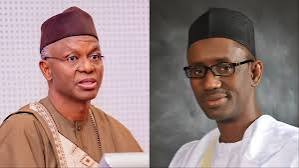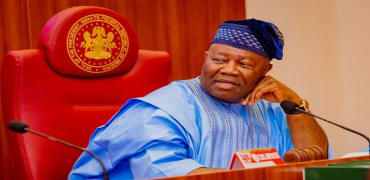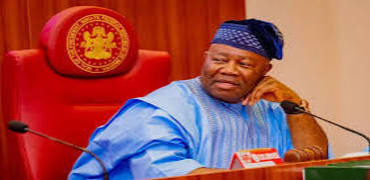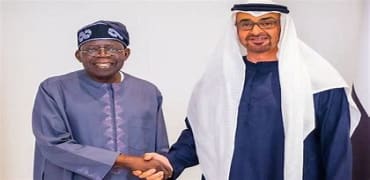NSA Ribadu Fires Back at El-Rufai: Banditry Claims “False, Insulting, and Dangerous”
NSA Ribadu Fires Back at El-Rufai: Banditry Claims “False, Insulting, and Dangerous”
Nigeria’s National Security Adviser (NSA), Nuhu Ribadu, has lashed out at former Kaduna State governor Nasir El-Rufai, rejecting his explosive claim that the Federal Government is “pampering” bandits through a policy of incentives and protection.
El-Rufai had stirred controversy on Sunday night while appearing on Channels Television’s Politics Today, where he accused the Office of the National Security Adviser (ONSA) of coordinating a national strategy of “feeding, paying, and empowering” criminal groups in the name of non-kinetic counter-terrorism.
“What I will not do is to pay bandits, give them monthly allowance, or send food to them in the name of non-kinetic,” El-Rufai said. “It’s nonsense. We’re empowering bandits. And this is not just Kaduna—it’s a national policy driven by the ONSA.”
Ribadu Hits Back
In a swift and strongly-worded statement released early Monday, Ribadu’s office dismissed the allegations as “false, baseless, and deeply insulting to the sacrifices of Nigeria’s security forces.”
“At no time has ONSA, or any arm of government under this administration, engaged in ransom payments or inducements to criminals,” said the statement signed by Ribadu’s spokesperson, Zakari Mijinyawa. “On the contrary, we have consistently warned Nigerians against paying ransom. El-Rufai’s claims contradict verifiable facts on ground.”
The NSA pointed to recent military and intelligence breakthroughs, citing the neutralisation of notorious warlords such as Boderi, Baleri, Sani Yellow Janburos, Buhari, and Boka, and the dismantling of Ansaru terror bases in Kaduna, as evidence of a hardline kinetic campaign—not appeasement.
“These successes came at a cost. Brave officers paid the supreme price. For a former governor to deny their sacrifices on national television is unfair and insulting to their memory,” Ribadu’s office stated.
The NSA further warned political figures against dragging security institutions into “partisan battles,” stressing that the fight against terrorism is a national struggle, not a political bargaining chip.
A Rift Reignited
The clash between Ribadu and El-Rufai adds another chapter to a long-running feud between the two former allies who once shared reformist credentials under President Olusegun Obasanjo’s administration.
Both men were regarded as rising stars in the early 2000s—Ribadu as the pioneer chairman of the Economic and Financial Crimes Commission (EFCC) and El-Rufai as the reformist Minister of the Federal Capital Territory.
But their friendship collapsed in 2011, when Ribadu emerged as the Action Congress of Nigeria’s presidential candidate, a move El-Rufai opposed, choosing instead to back Muhammadu Buhari of the then-Congress for Progressive Change.
Since then, their rivalry has resurfaced intermittently. Earlier this year, El-Rufai accused Ribadu of using anti-graft agencies to “hound” him over corruption allegations tied to his stewardship in Kaduna. Ribadu denied the charge, insisting that anti-corruption bodies act independently.
The Bigger Picture
The Ribadu–El-Rufai spat highlights not only old wounds but also the high stakes of Nigeria’s fragile security landscape. With banditry, kidnapping, and terrorism still haunting communities across the North-West and North-Central, the public war of words between two powerful figures may deepen political divisions at a time when national unity is sorely needed.
By Haruna Yakubu Haruna


















